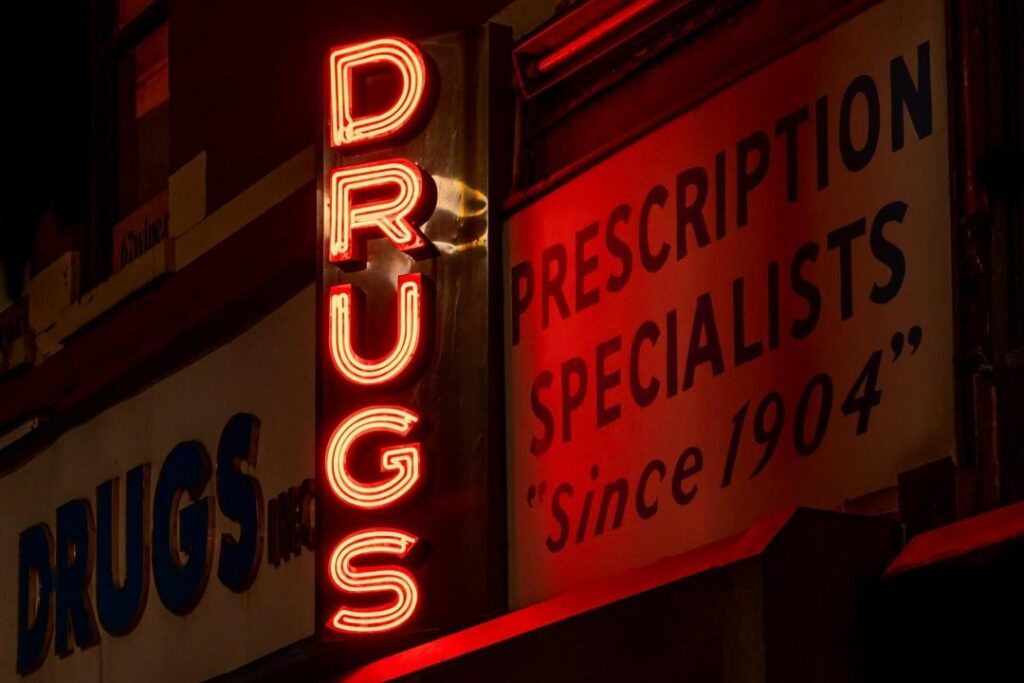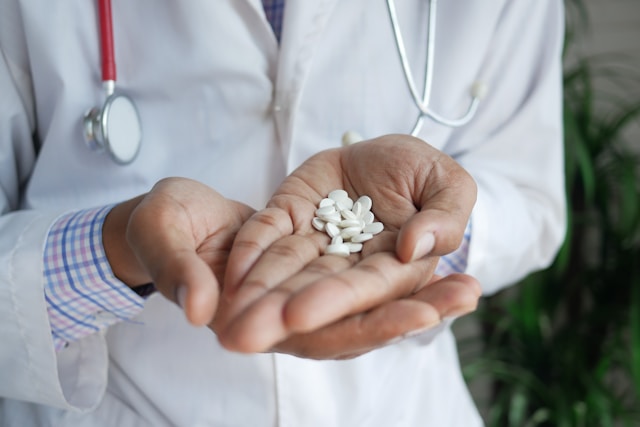
Table of Contents
Taking any type of drugs prescribed by a doctor in a way that has not been recommended can put you at greater risk of drug addiction. Such drug use may have harmful effects on your overall well-being. Also, it is illegal, just like using drugs available on the street to make you feel high and lead to drug addiction.
What Is Prescription Drug Addiction?
Prescription drug addiction refers to the use of prescription drugs or medicine in a way that the prescriber has not suggested. Prescription drug addiction is also known as prescription drug misuse. It includes everything from taking a drug for your backache to injecting any ground-up drug just to feel high.
A prescribed medicine can only be bought for a patient according to the instructions written down by an authorized professional. Some examples of prescription drug medicines are cancer medicines, blood pressure medicines, and strong painkillers.
Why Do People Misuse Prescription Drugs?
Some people misuse prescription drugs because they believe that if they take the drug more, it will make them feel more energetic and happy, lose more weight, etc. Some prescription medicines like opioids are easier to buy as compared to street drugs like cocaine, marijuana, etc. You can easily get more than the prescribed quantity from your family or friends. Many teens and adults also misuse prescribed medicines to feel good, get high, relax, relieve tension, and ease pain.
Why Do Some People Become Addicted To Prescription Drug Use While Others Do Not?
Some people become addicted to drug use, while others do not because of their genes. Some other factors that influence drug addiction in people are their ethnicity, gender, and the presence of any other mental disorder.
Many scientists are still unsure to date about why this happens. But it is good to know that drug addiction runs in families. Certain types of genes have been linked to different types of addiction. But not all family members are prone to it.
Which Prescription Drugs Are Abused?
Opioids, CNS Depressants, and Stimulants are a few prescribed medicines that are most commonly misused by people struggling with addiction. Opioids are prescribed for pain relief. CNS Depressants are mainly recommended for sleep and anxiety problems. Stimulants are prescribed for hyperactivity disorder, etc.
People addicted to opioids start using them to treat pain or certain medical conditions. Generally, many people take prescribed drugs to get rid of mild to severe pain. The main objective of using prescribed medicines is to live a more comfortable life.
What Environmental Factors Increase The Risk Of Substance Use Disorder?
Family conflicts, stress, and divorce are three environmental factors that may result in abusive drug use and drug addiction. When an individual grows up and does not find a way to deal with chaos and stress in daily life, they may turn to drug use to cope. They may also be influenced by family members who normalize substance use for them.
Environmental factors such as physical and sexual abuse, peer pressure, early exposure to drugs, and parental guidance can affect addiction to opioids. These factors can immensely impact how a person takes the much-prescribed drugs and affect part of the brain.
Don’t Let Relapse Keep You Down – Science Of Addiction
Relapse is a common part of the recovery from overdose or addiction. It can be very discouraging and frustrating for those who seek treatment. One can use relapse as an opportunity to learn from their mistakes, identify triggers, and correct their response to drug addiction treatment.
Science teaches us that stress cues linked to drug use, like moods, people, places, and things, are the most common triggers for relapse. Learning life skills like creative and critical thinking, self-awareness, communication and interpersonal skills, and problem-solving skills has positive effects post-drug addiction treatment.

Build A Meaningful Drug-Free Life
You can build a meaningful, drug-free life to improve your health and safety. It is never too late to make the switch! There is no specific diagnostic and statistical manual that works for everyone. Every substance has its unique impact on an individual. Drug addiction treatment should be tailored not based on a statistical manual of mental disorders but based on an individual’s personal needs.
Drug users can build a meaningful, drug-free life by admitting that they have drug addiction. You must expect to overcome drug addiction if you desire to save yourself from the ill effects of drug addiction. You can even change and challenge unconscious cravings, including addiction to smoking, taking drugs, opioid painkillers, etc.
Risk Factors Associated With Substance Use Disorder
Many risk factors affect drug use and withdrawal symptoms. The ill effects of drug use can be avoided when you understand the risk factors associated with addictive behavior and switch to a positive environment. You can take timely steps to recover from drug use disorder with a support group.
Family history of drug use and favorable parental guidance are two of the most common risk factors associated with drug use disorder. A few more risk factors associated with drug use disorder are poor parental monitoring, family rejection of gender identity, lack of connection to school or work, association with peers addicted to drug use disorder, etc.
Prevention Of Developing An Addiction
You can prevent yourself or your loved ones from developing an addiction to drug use by developing an understanding of how drug use develops. You can seek help from a psychiatrist or therapist, and they will tell you all about how addiction has been causing problems in your life.
They will guide you to stop continuing to use drugs and make you understand that it is only a short-term solution. In the likelihood you are still not willing to understand the health problems drug use is bringing to the table for you, they will teach you ways to avoid temptation and deal with peer pressure.
Drugs can hurt the lives of many people. Preventing early use of addiction is something that one needs to take care of from the start. Getting recovery support will surely save you all the hassle and provide the relaxation you were looking for without dependence on misuse alcohol.
FAQs
Drug use is a disease that affects the brain of a person. The impact of drug use differs from person to person.
The urge to continue drug use. It plays a role in drug addiction. You may find yourself wanting to consume more drugs like heroin when you have drug cravings.
Repeated drug use can lead to physical changes and mental changes. It messes with psychiatry and leads to an increased risk of developing addiction due to factors like loneliness.
Kidney, liver, heart, and cancer problems are the health effects of excessive drug use.
Yes, drug addiction disorder is a disability. It affects an individual's brain and behavior.
A family history of addiction can increase the risk of addiction.
The most common type of substance use disorder is alcohol use disorder.
Heroin addiction has the highest relapse rate.
Repeated use of drugs can make one addicted to drug use.
Drug-free refers to a person who does not indulge in illegal drug use. It can also refer to a place where no illegal drug use takes place.










